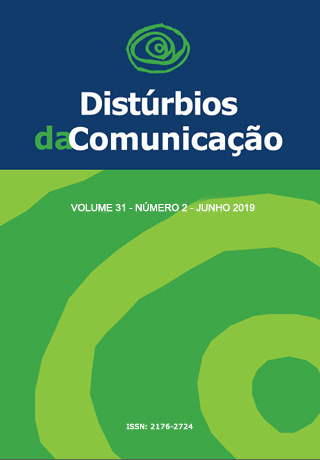Neuroanatomical and linguistic characteristics of acquired dyslexia
DOI:
https://doi.org/10.23925/2176-2724.2019v31i2p187-195Keywords:
Acquired dyslexia, Language Disorders, Stroke, Traumatic Brain InjuriesAbstract
Introduction: acquired dyslexia is characterized by the loss of the capacity to understand the meaning of written words previously developed. This condition can be caused by strokes, trauma and other brain diseases. Objective: to investigate the characteristics of acquired dyslexia, exploring the neuroanatomical correlations in the encephalopathies that produce them, through a literature review. Method: For the study, the authors followed the criteria suggested by the Cochrane Handbook. Firstly, a question was asked, followed by the location and careful selection of the articles. Then, the critical evaluation of each study occurred, ending with the analysis, interpretation and presentation of the results found. The databases Science Direct, Pubmed / Medline and Scopus, using the descriptors “brain diseases”, “brain injuries”, “traumatic brain injuries” and “stroke” with the Boolean operator OR, associated with the descriptors “alexia” and “acquired dyslexia” through the Boolean operator AND. Literature Review: The first electronic search counted 137 scientific articles, of which 11 were chosen because they were studies containing the anatomical relationship of lesions and/or clinical and linguistic signs of acquired dyslexia. Conclusion: The main cause of acquired dyslexia was stroke, especially in the occipital lobe, in both hemispheres, affecting the perception and subsequent visual recognition of the word. It is necessary to broaden the research on acquired dyslexia in order to deepen the knowledge about it, instrumentalizing the clinicians for the rehabilitation processDownloads
Download data is not yet available.
Downloads
Published
2019-07-24
Issue
Section
Artigos
License
Copyright (c) 2019 Bianca Nunes Pimentel, Uiliam Ferreira Boff, Marta Romero de Vargas

This work is licensed under a Creative Commons Attribution 4.0 International License.









